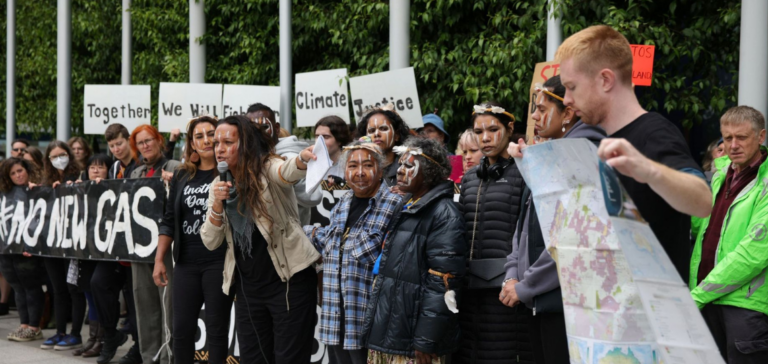The Australian company Santos, one of the country’s largest oil and gas producers, had planned to build a subsea pipeline off the northern coast of Australia to bring gas from subsea wells to onshore processing plants. However, Simon Munkara, owner of the Tiwi Islands, has obtained a temporary injunction suspending the project. The court ruled that Santos had not sufficiently considered the potential damage to heritage sites important to the aboriginal community.
The concerns of an aboriginal leader
The suspension of the project has sparked debate about its impact on the cultural heritage of the Tiwi Islands, where aborigines make up around 90% of the population.
The islands are renowned for their art, language and passion for Australian soccer. However, the A$5 billion Barossa gas project has faced delays due to concerns about its impact on the environment and cultural areas.
Mr. Munkara said in a statement after Thursday’s hearing: “We take the protection of our country seriously. It is our obligation. I’m doing this for my children, so that our culture can be passed on to future generations.”
Santos’ reaction
Santos reacted by saying that she respected “the cultural heritage of the Tiwi people”. The 260-kilometer pipeline would pass close to the Tiwi Islands, where around 90% of the 2,000 inhabitants are Aboriginal Australians, known for their art, language and passion for Australian soccer. The A$5 billion (€3 billion) Barossa gas project has been subject to delays due to concerns about its impact on the environment and cultural sites.
Gas from the Barossa offshore field was to be transported to Darwin for processing and export. Environmental and cultural concerns were heightened in Australia after mining company Rio Tinto exploded prehistoric caves inhabited by Aborigines in 2020.
The suspension of the gas pipeline project in Australia highlights the concerns of Aboriginal communities about the preservation of their cultural heritage. The final decision on whether to resume or cancel the project will be taken by the court on November 13.






















